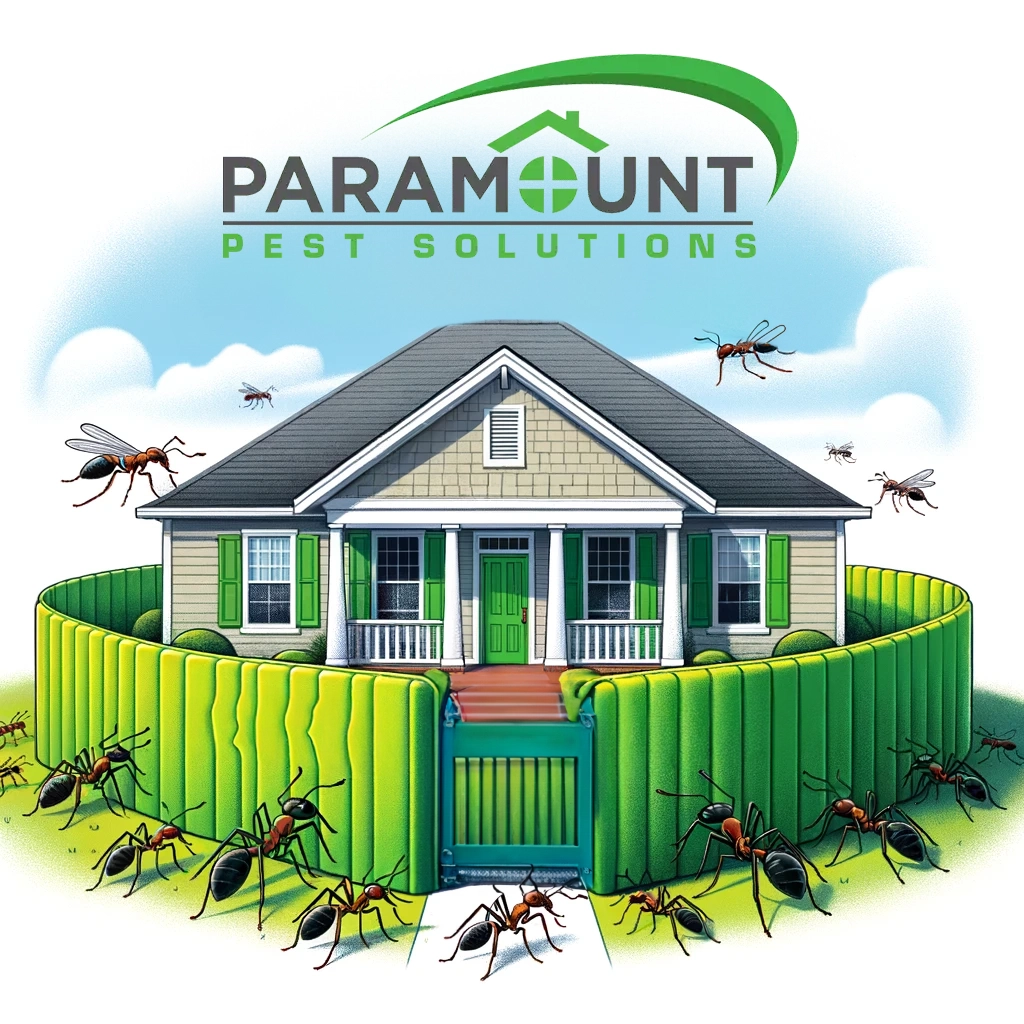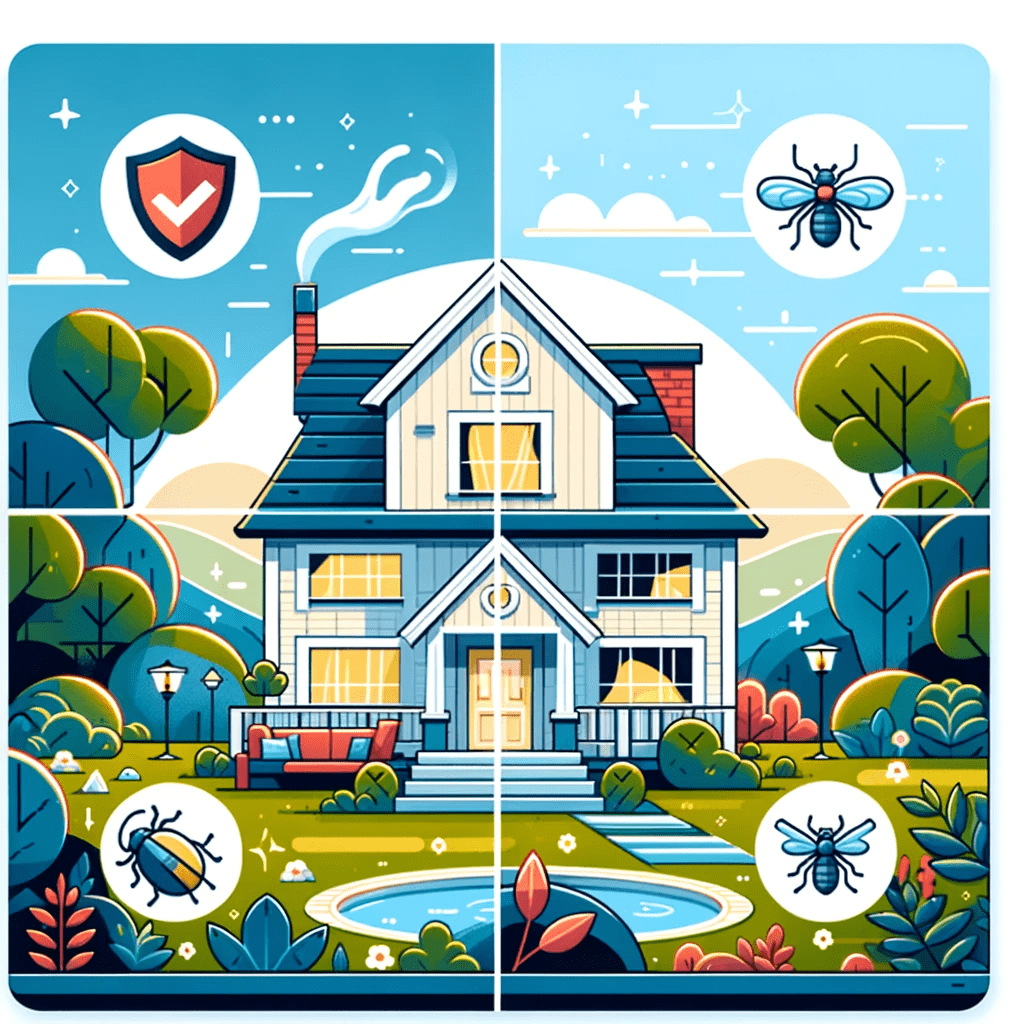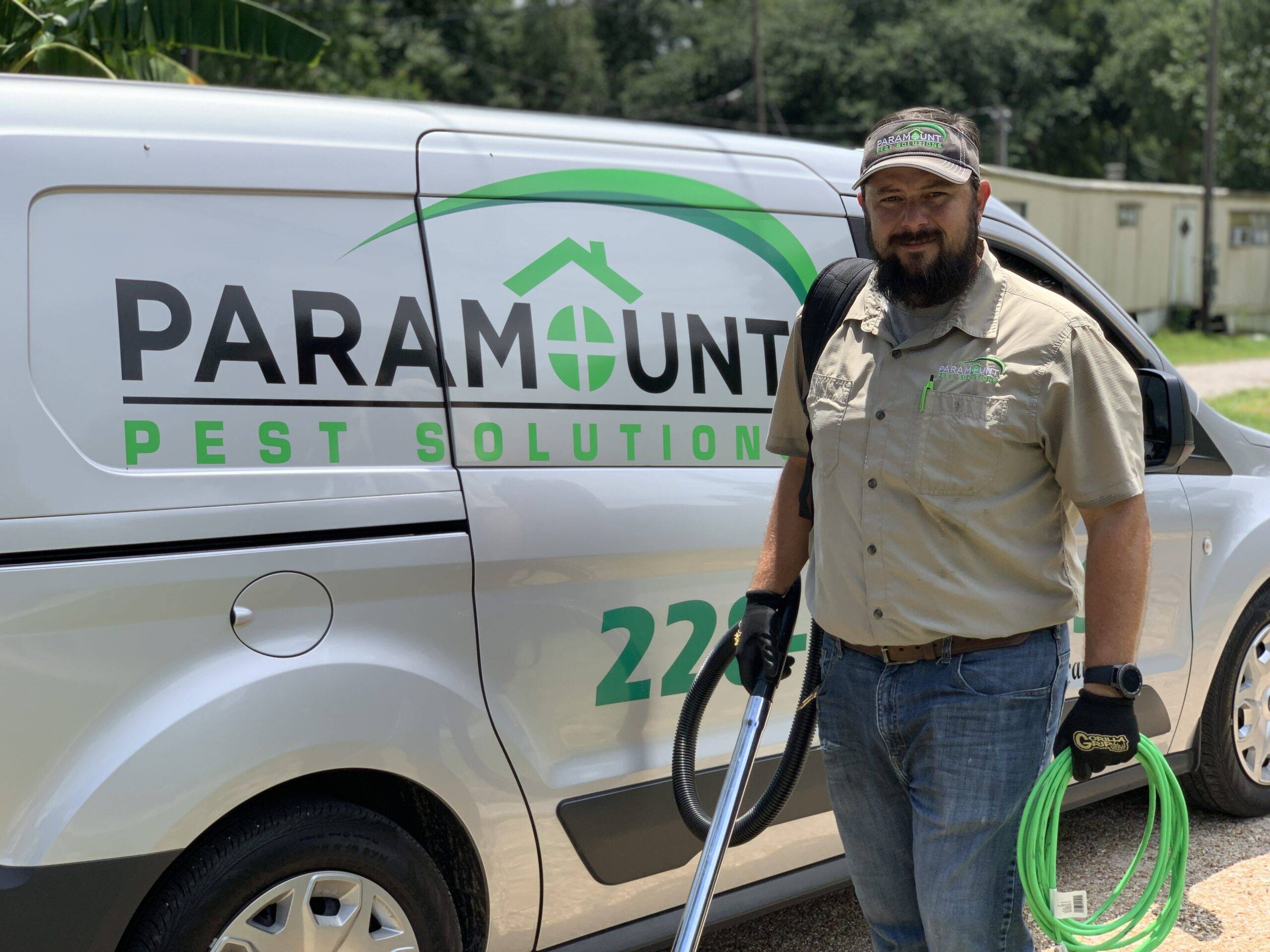Each season brings its own unique set of pests and challenges. From ants invading your kitchen in the spring to rodents seeking warmth in the winter, understanding seasonal pest patterns is crucial for effective pest control. In this blog, we’ll provide comprehensive tips for managing pests throughout the year, ensuring your home remains pest-free.
Key Points Covered
- Spring pest control tips
- Summer pest control tips
- Fall pest control tips
- Winter pest control tips
- Benefits of professional pest control services
Glossary of Terms
- Extermination: The act of killing or removing pests from an area.
- Integrated Pest Management (IPM): A comprehensive approach to pest control that combines various methods for long-term prevention.
- Residual Insecticides: Chemicals that remain effective over a period of time after application.
- Bait Stations: Devices that hold bait for pests, attracting them and delivering a lethal dose.
- Sealing Entry Points: Closing off gaps and cracks to prevent pests from entering a building.
Spring Pest Control Tips
Spring is a time of renewal, but it’s also when many pests become active. Here’s how to keep your home pest-free during this season:
Common Spring Pests:
- Ants
- Termites
- Stinging Insects (bees, wasps)
- Spiders
Tips:
- Seal Entry Points: Check for and seal any cracks or gaps around windows, doors, and the foundation of your home to prevent insects from entering. Even small openings can be an invitation for pests like ants and termites to enter your home.
- Clean Up Yard Debris: Remove leaf litter, fallen branches, and other debris from your yard to eliminate potential nesting sites for pests. Piles of leaves and wood can attract pests like termites and ants looking for food and shelter.
- Inspect for Ants: Ants often invade homes in search of food. Keep your kitchen clean, store food in sealed containers, and use ant baits if necessary. Regularly inspect common entry points such as kitchen windows and doors.
- Maintain Gutters: Clean out gutters to prevent water buildup, which can attract pests like mosquitoes and termites. Ensure downspouts direct water away from the foundation to avoid moisture accumulation.
Spring is the perfect time for pests to emerge from their winter dormancy and look for food and shelter. Ants, for instance, start to form trails leading into your home. Termites begin to swarm in search of new places to establish colonies. Ensuring your home’s perimeter is sealed can prevent these pests from gaining entry. Additionally, stinging insects like bees and wasps begin building nests, which can be mitigated by keeping your yard clean and free of debris.

Summer Pest Control Tips
Summer heat brings a variety of pests that thrive in warmer temperatures. Follow these tips to manage summer pests:
Common Summer Pests:
- Mosquitoes
- Flies
- Wasps
- Ants
- Fleas
Tips:
- Eliminate Standing Water: Mosquitoes breed in standing water. Regularly empty birdbaths, plant saucers, and any other containers that collect water. Ensure that your yard has proper drainage to avoid water pooling.
- Use Screens: Ensure all windows and doors have screens in good condition to keep out flying insects like flies and mosquitoes. Repair or replace any damaged screens immediately.
- Manage Trash: Keep trash cans tightly sealed and away from your home to deter pests like rodents, raccoons, and insects. Clean the trash area regularly to avoid odors that attract pests.
- Treat for Wasps and Hornets: Inspect your property for nests and treat them carefully. Consider professional removal for larger nests. Use wasp and hornet sprays that allow you to maintain a safe distance.
Summer is the peak season for many pests due to the warm weather and abundance of food sources. Mosquitoes, which can transmit diseases, thrive in standing water. Maintaining a dry environment is key to controlling their population. Flies and ants are also more active, often infiltrating homes in search of food. Keeping your home clean and ensuring that food waste is properly managed can significantly reduce the attraction of these pests. Additionally, wasps and hornets are more aggressive in the summer and can build nests in and around your home, so it’s important to address any nests promptly.

Fall Pest Control Tips
As temperatures cool, pests seek shelter indoors. Here’s how to protect your home in the fall:
Common Fall Pests:
- Rodents (mice, rats)
- Spiders
- Cockroaches
- Stink Bugs
Tips:
- Inspect and Seal Entry Points: Rodents and insects look for warmth. Seal cracks and gaps in your home’s exterior, especially around the foundation and roofline. Pay special attention to areas where utilities enter your home.
- Store Firewood Properly: Keep firewood at least 20 feet away from your home and elevated to reduce the risk of termites and other pests. Firewood stacked close to the house can be an easy bridge for pests.
- Clean Up Fallen Leaves: Remove fallen leaves and debris from your yard to eliminate hiding places for pests. Leaf piles can attract moisture and pests such as spiders and rodents.
- Check for Spiders: Spiders often move indoors in the fall. Regularly clean and vacuum to reduce spider webs and egg sacs. Inspect dark, quiet areas like basements and attics where spiders are likely to hide.
Fall is a critical time for pest control as many pests seek to enter homes for warmth and shelter. Rodents, for example, are notorious for entering homes through small cracks and can cause significant damage and health risks. Spiders and cockroaches also look for warm places to hide, making it important to keep your home clean and sealed. Stink bugs, although not harmful, can become a major nuisance if they enter your home. Proper yard maintenance and storing firewood away from your house can help reduce these fall pests.

Winter Pest Control Tips
Winter cold drives many pests indoors. Keep your home pest-free with these tips:
Common Winter Pests:
- Rodents (mice, rats)
- Silverfish
- Cockroaches
- Spiders
Tips:
- Inspect Insulation: Ensure that your attic and basement insulation is intact and not providing nesting material for rodents. Proper insulation can also help maintain indoor temperatures and prevent pests from seeking warmth.
- Check for Rodent Activity: Look for signs of rodents like droppings, gnaw marks, and nests. Use traps or baits, and consider professional pest control for severe infestations. Regularly inspect storage areas and under appliances for signs of activity.
- Store Food Properly: Keep all food, including pet food, in airtight containers to prevent attracting pests. Rodents and insects are attracted to easily accessible food sources.
- Maintain Heating Systems: Regularly check and maintain your heating systems to ensure there are no openings for pests to enter. Make sure vents and ducts are properly sealed.
During winter, pests such as rodents and insects look for warmth and food inside homes. Mice and rats can cause significant damage by chewing through wires and contaminating food sources. Silverfish and cockroaches thrive in the damp, warm areas of your home, such as basements and bathrooms. Ensuring proper insulation and sealing entry points can prevent these pests from getting comfortable in your home. Regularly checking for signs of rodent activity and maintaining your heating systems are essential for winter pest control.

Seasonal Pest Control Data Table
| Season | Common Pests | Prevention Tips | Professional Services Benefits |
| Spring | Ants, Termites, Bees, Wasps, Spiders | Seal entry points, clean yard debris, inspect for ants, maintain gutters | Early detection and treatment of infestations |
| Summer | Mosquitoes, Flies, Wasps, Ants, Fleas | Eliminate standing water, use screens, manage trash, treat for wasps and hornets | Effective management of large infestations |
| Fall | Rodents, Spiders, Cockroaches, Stink Bugs | Inspect and seal entry points, store firewood properly, clean up fallen leaves, check for spiders | Prevention of indoor infestations |
| Winter | Rodents, Silverfish, Cockroaches, Spiders | Inspect insulation, check for rodent activity, store food properly, maintain heating systems | Long-term pest control plans |
Fun Facts About Seasonal Pests
- Ants: Ants are capable of lifting objects 50 times their own body weight, making them incredibly strong for their size.
- Mosquitoes: Only female mosquitoes bite, as they need blood to produce eggs. Male mosquitoes feed on nectar.
- Spiders: Spiders produce silk that is stronger than steel when compared by weight.
- Rodents: Mice and rats can squeeze through openings as small as a dime, making it essential to seal even the tiniest cracks.
- Termites: Termites never sleep. They work 24 hours a day, causing potential damage to homes and structures.
FAQ: Seasonal Pest Control
1. What should I do to prevent mosquitoes in the summer?
- Eliminate standing water where mosquitoes can breed. Regularly empty containers that collect water, fix any leaks, and ensure proper drainage in your yard.
2. When is it most important to check for rodent activity indoors?
- Winter. As temperatures drop, rodents seek warmth indoors. Regularly inspect for droppings, gnaw marks, and nests, particularly in basements and attics.
3. What is a common fall pest prevention tip?
- Clean up fallen leaves and yard debris to eliminate hiding places for pests. Also, inspect and seal any entry points to prevent rodents and insects from entering your home.
4. Why is it important to maintain gutters in spring?
- To prevent water buildup that can attract pests like mosquitoes and termites. Clean gutters help ensure proper drainage away from your home.
5. Which season requires extra attention to sealing entry points?
- Fall. As the weather cools, pests seek shelter indoors. Sealing entry points can prevent rodents and insects from entering your home.
6. Are professional pest control services necessary year-round?
- While DIY methods can help, professional pest control services provide comprehensive and effective solutions tailored to each season’s pest challenges.
7. How can I prevent wasps and hornets in the summer?
- Inspect your property for nests and treat them carefully. Use wasp and hornet sprays that allow you to maintain a safe distance, and consider professional removal for larger nests.
8. What are the benefits of Integrated Pest Management (IPM)?
- IPM combines various pest control methods for long-term prevention, minimizing the use of chemicals and focusing on sustainable solutions.
9. How can I safely store firewood to prevent pests?
- Keep firewood at least 20 feet away from your home and elevate it off the ground. This reduces the risk of termites and other pests using it as a bridge to your home.
10. What are some signs of termite activity in the spring?
- Look for mud tubes on exterior walls, discarded wings near windows and doors, and hollow-sounding wood. Early detection can prevent significant damage.

Keep Your Home Pest-Free Year-Round with Paramount Pest Solutions
Each season presents its own pest challenges, but with the right strategies, you can maintain a pest-free home all year. Paramount Pest Solutions offers comprehensive pest control services tailored to each season’s specific needs. Protect your home and family from pests—contact us today!
